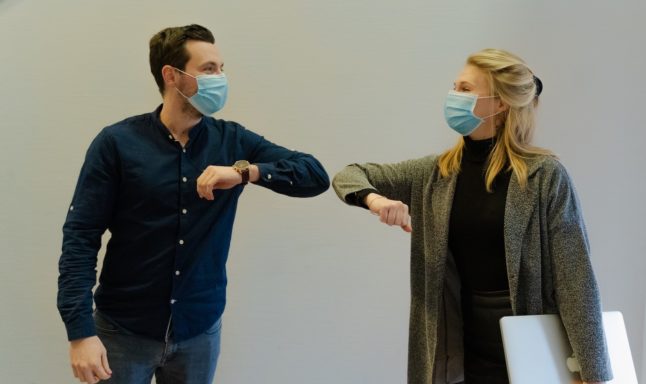After a relative lull in the pandemic in the spring, Covid-19 cases surged at the beginning of the summer, driven by new, fast-spreading Omicron sub-variants.
The weekly reports on the epidemiological situation from the Federal Office of Public Health (FOPH) show that the number of new cases kept steadily increasing until about the middle of July, when it peaked at about 56,000 new cases reported in Switzerland in a single week.
From then on, the numbers have been dropping steadily, with 18,204 new infections recorded this week.
What can we expect in the coming weeks and months?
One thing we have learned in the past two and a half years is that coronaviruses are unpredictable, and their evolution (or the emergence of new sub-variants) can’t be forecast with a high degree of certainty.
For instance, health experts did not foresee this summer’s outbreak, believing – based on the experiences of previous waves – that infections are more common in the autumn and winter when cold weather drives people indoors.
READ MORE: ‘Over a million people’ in Switzerland could be infected with Covid this summer
It is also difficult to predict what new sub-variants and mutations could emerge in the future, or what properties they will have.
Next wave and hospitals
Health officials in neighbouring France believe that a surge of Covid cases in the autumn is ‘virtually certain’.
Given the geographic proximity and the flow of people between the two countries, it is reasonable to expect the same scenario to unfold in Switzerland as well.
However, Swiss experts say they believe that even if there is a new wave, most people will have only mild or moderate symptoms.
“The most recent data shows that 97 percent of the adult population in Switzerland has antibodies against Covid thanks to vaccinations and previous infections”, said Tanya Stadler, former head of the Covid-19 Task Force.
Based on the current evolution and forecasts, authorities say they don’t expect the health system to be overloaded with new Covid patients.
This is because “circulating sub-variants of Omicron do not cause more severe forms of the disease than the previous sub-variants”, the government said.
Vaccines
A second booster shot of the Covid vaccine (representing a fourth dose for most people) is already available to people in high-risk groups, but while authorities are urging people to get vaccinated, they also say that if Omicron remains the dominant variant, no mass vaccinations will be needed in the near future.
“The current vaccine does not provide clear protection against the Omicron”, according to Giuseppe Pantaleo, head of the immunology unit at Vaud university hospital (CHUV).
That may change soon, however: both Pfizer and Moderna have asked Switzerland’s drug regulatory body, Swissmedic, to authorise their Omicron-adapted vaccines.
The agency is now reviewing the applications but once approved, the new vaccines are expected to be used for the second round of booster shots, with the rollout for general public to begin sometime in the fall.
READ MORE: Covid boosters not available in Switzerland until autumn



 Please whitelist us to continue reading.
Please whitelist us to continue reading.
Member comments